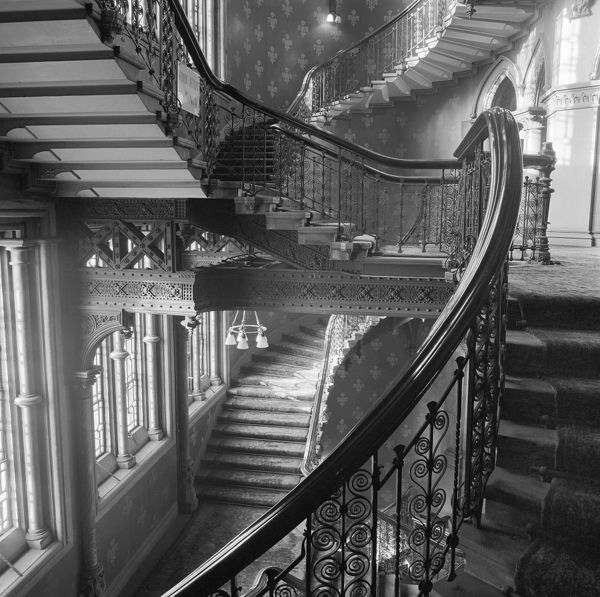Ringing the inverted silver cup on the marble counter, the desk clerk scanned the lobby, imperious gaze sliding cheerfully over the guests until finding me, “See to Mr. Egmont’s baggage, and be quick about it,” his eyes rolled to the outer edges of a smile that was as hopeful as it was subservient, “Enjoy your stay at the Pancras, sir.”
“May I carry that for you, sir,” the volume of my voice intimate and it’s tone deferential, I gave silent thanks to Lilith for the hotel employee who brought to work a fortuitous match of height and weight, which combined with my knowledge of human anatomy, several lengths of corded belt and an unoccupied alcove off the scullery, was all I needed to walk into the lobby, just another uniformed porter in a sea of guests, where my, ‘Mr. Egmont’, now stood, scanning the cavernous lobby like a tiger cub enjoying the novelty and variety of the world outside his den; stepping up to take his only luggage, a leather messenger bag, I captured his complete attention.
In the three tenths of a second I managed to be face-to-face, I acquired a combination of resume, diary and guilty confession; his was the response of a predator finding itself in unknown territory, possibly at risk: at-once and yet, sequentially, he appeared startled, innately confident, followed by a stutter of uncertainty, finally back to a rock-solid competency, if not superiority, over his immediate environment.
“Follow me, sir,” a tailored-flannel celebration of the military pomp of the Napoleonic Wars, my newly-acquired uniform permitted me to navigate the crowded hotel lobby like a blue-on-gold pilot fish through a pre-frenzy school of sharks; up two flights of blue-veined marble to where I hoped his room would be and, with no small relief, I opened the door and stepped back as my time traveler, Mr. Egmont, entered the lavish suite.
I leaned the messenger bag against the side of the desk next to the bed and crossed to the windows to let in some of the early evening air; looking to the mirror over a chest of drawers, I watched my quarry to pick up the bag and, oddly, lay it on its flat side on the desktop, the flap parted slightly and there was a silver-metallic, Mr Egmont’s reflection joined me in the mirror; I almost stumbled at the combination of fear and hunger that pressed outwards in the silvered glass image while, at the same moment, not by chance, one of Brother Abbott’s lectures played in my mind.
Sarah, (whose path in the Order increasingly intersected with my own), asked, “Brother Abbott why do the children of Eve appear so determined to destroy the gifts God,” to which he replied, not without a sigh, “Because, young miss, when they were given the keys to the earth and its creations, they willfully misheard God say שליטה rather than what our Mother Lilith heard, which was אַפּוֹטרוֹפּוֹס, which means guardianship and not the far more tempting word שליטה ‘to have dominion over the earth and its life.”


Pingback: Six Sentence Story -the Wakefield Doctrine- | the Wakefield Doctrine